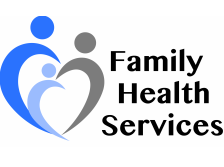Diabetes News – November 2022
NOVEMBER IS NATIONAL DIABETES MONTH
November is National Diabetes Month, a time when communities across the country team up to bring attention to diabetes. This year’s focus is on managing diabetes by building your health care team. Diabetes is a disease that occurs when your blood glucose, also called blood sugar, is too high. It affects about 37 million Americans, including adults and youth. Diabetes can damage the eyes, kidneys, nerves, and heart, and is linked to some types of cancer.
Working with health care professionals who can offer you the personal care you need may help improve your health. And while it takes a team to manage diabetes, remember that you are the most important participant in your diabetes care.
Here are some tips to help you manage diabetes and build your health care team:
You are the center of your care
● Learn as much as you can about your disease and talk with your primary care provider about how you can get the support you need to meet your goals.
Manage diabetes as early as possible
● Take steps to improve your health. Talk with your primary care provider about how you can manage your diabetes, follow the ABCs, and create a diabetes care plan. Research has shown that taking action soon after being diagnosed can help prevent diabetes-related health problems such as kidney disease, vision loss, heart disease, and stroke. If your child has diabetes, be supportive and positive. Work with your child’s primary care provider to set specific goals to improve their overall health and well-being.
Build your diabetes health care team
● A team of health care professionals can tailor your care for your specific needs. Besides a primary care provider, your health care team may include a nutritionist and a certified diabetes educator. Ask your primary care provider if you should talk with other health care professionals about your diabetes.
Prepare for visits with your providers
● Before your appointment, write down a list of questions, review your diabetes self-care plan, and record your blood glucose results.
Take notes at your appointment, ask for a summary of your visit, or check your online patient portal
● Have a blood pressure check, foot check, and weight check. Talk with your team about medications and new treatment options, as well as the vaccines you should get External link to reduce your risk of getting sick.
Make physical activity and healthy eating part of your daily routine
● Set a goal and try to be active most days of the week and follow a diabetes meal plan. Choose fruits and vegetables, whole grains, lean meats, tofu, beans, seeds, and non-fat or low-fat milk and cheese. Consider joining a support group that teaches techniques for managing stress and ask for help if you feel down, sad, or overwhelmed. Sleeping for 7 to 8 hours each night can help improve your mood and energy level.
Content Source: National Institute of Diabetes and Digestive and Kidney Diseases https://www.niddk.nih.gov/health-information/community-health-outreach/national-diabetes-month
The Diet-Betus – our version of recipe of the month just as tasty but with a healthy tweak here and there. November is here, Halloween might be over but that doesn’t mean pumpkin has to be. Try this pumpkin soup packed with fiber and protein for a delicious and cozy dinner. Pair it with a spinach salad topped with your favorite nut and balsamic vinaigrette.
PUMPKIN SOUP
Servings: 4
Prep Time: 15 minutes
Cook Time: 20 minutes
Total Time: 35 minutes
Ingredients:
● 1 can white beans (15 oz, rinsed and drained)
● 1 onion (small, or 2 tsp onion powder)
● 1 cup water
● 1 can plain pumpkin puree (15 oz *be sure to not accidentally buy pumpkin pie filling)
● 16 oz low sodium vegetable or chicken broth
● ½ tsp thyme (or tarragon)
● Pepper (optional, to taste)
Instructions:
1. Blend white beans, onion, and water
2. In a soup pot, mix bean puree with pumpkin, broth, and spices
3. Cover and cook over low heat about 15-20 minutes until warmed through
Nutrition:
● Calories: 152 kcals, Total fat: 1g, Saturated fat: 0g, Cholesterol: 0mg, Sodium: 85mg, Potassium: 474mg, Total Carbs: 30g, Fiber: 7g, Protein: 8g
Community offerings:
Due to coronavirus/COVID 19, many community offerings have been changed, postponed, or canceled.
Please call the number listed for the event to verify availability, dates, and times.
Diabetes Empowerment Education Program (DEEP)
COST: Free
CONTACT: Tina Ellinger 419-624-1856
The Diabetes Empowerment Education Program [DEEP] is offered every Wednesday for six weeks. Good attendance is important. This free program is for diabetics, pre-diabetics, and spouses or caregivers of a diabetic. Residents of Erie County, aged 60 or older, please call 419-624-1856 to register.
Diabetes Support Group – Firelands Regional Medical Center
The Diabetes Support Group presented by Jean Feick CNP, CDE, meets the third Wednesday of each month Sept–November and January-May from 12:00pm –1:00pm. This meeting is free to the public and no registration is required. Attendees are welcome to purchase lunch in the hospital cafeteria and come to the adjacent Cafeteria Meeting #1. A different topic will be reviewed each month. If you have questions, please contact the Diabetes Education Department at 419-557-6992.
HEALTH & WELLNESS SCREENING – offered by Firelands Regional Medical Center
You must Pre-register for all Lab Work at 419-557-7840.
Sandusky Health & Wellness
● Firelands Sandusky HealthCare Center
2520 Columbus Ave.
Sandusky, OH 44870
Saturday, Aug 13
7:00 am to 9:30 pm
● Firelands Sandusky HealthCare Center
2520 Columbus Ave.
Sandusky, OH 44870
Saturday, Sep 10
7:00 am to 9:30 pm
● Firelands Sandusky HealthCare Center
2520 Columbus Ave.
Sandusky, OH 44870
Saturday, Nov 5
7:00 am to 9:30 pm
● Firelands Sandusky HealthCare Center
2520 Columbus Ave.
Sandusky, OH 44870
Saturday, Dec 3
7:00 am to 9:30 pm
Health & Wellness Screenings include:
● Complete Blood Count with Metabolic & Lipid Panel (No Eating or Drinking for 12 Hours – Water Allowed – includes liver and kidney function studies, fasting blood sugar, thyroid, cholesterol, HDL/LDL, and triglyceride levels along with a complete blood count.) – $45
● Hemoglobin A1C (Three-month report on blood sugars; results used to diagnose diabetes and/or to evaluate how well your treatment plan is working.) – $25
● PSA (Prostate Specific Antigen)- $30
● Vitamin D – $35
● TSH – $25
Please comply with the following COVID-19 precautions:
1. Wear a mask
2. Have your temperature taken upon arrival
3. Follow social distancing practices
Please note – Patients will not be allowed to enter until their scheduled time. Walk-ins will not be accepted. Only the registered patient will be allowed to enter the screening unless the patient needs assistance from an accompanying person. We are unable to perform any additional physician-ordered tests not included in the list above.
Contact: Centralized Scheduling at 419-557-7840 to pre-register
The A1C test—also known as the hemoglobin A1C or HbA1c test—is a simple blood test that measures your average blood sugar levels over the past 3 months. It’s one of the commonly used tests to diagnose prediabetes and diabetes, and is also the main test to help you and your health care team manage your diabetes. Higher A1C levels are linked to diabetes complications, so reaching and maintaining your individual A1C goal is really important if you have diabetes.
Last quarter, 70% of our diabetic patients had an A1C of less than 9%. Talk with your provider at your next visit about the right options for you! Schedule an appointment: 419-502-2800



